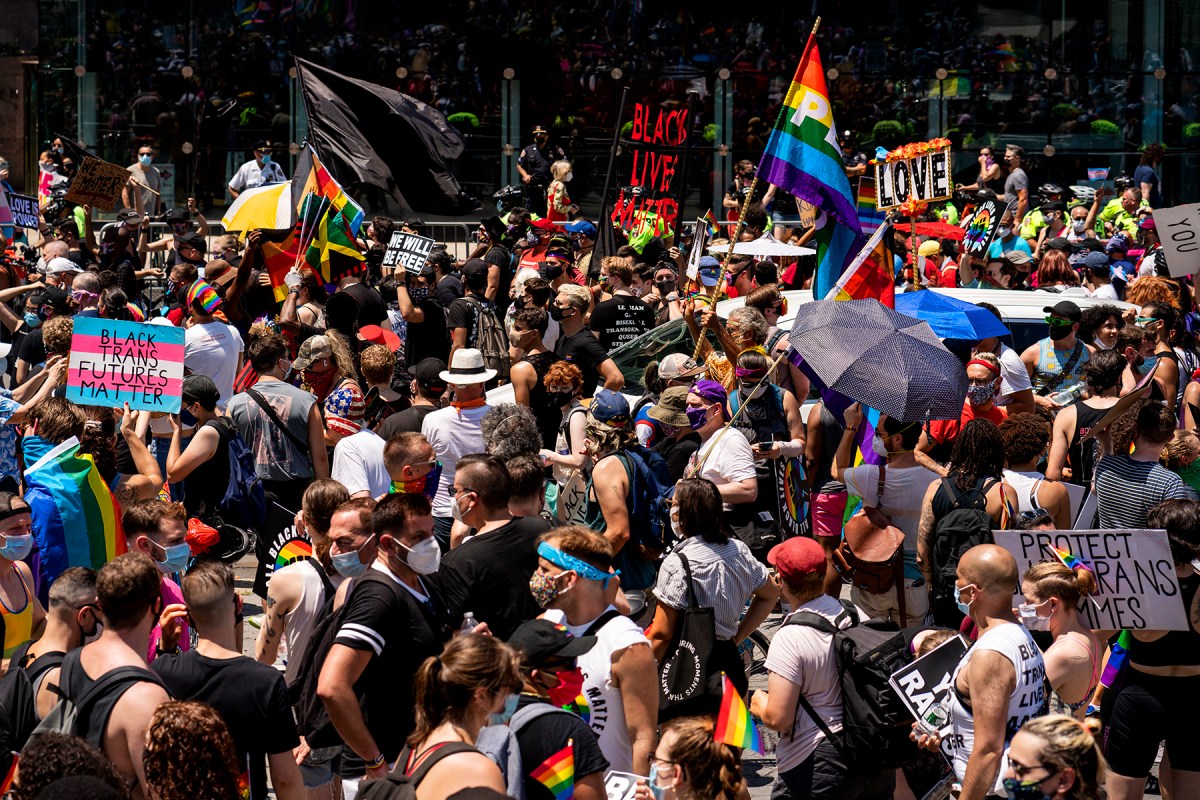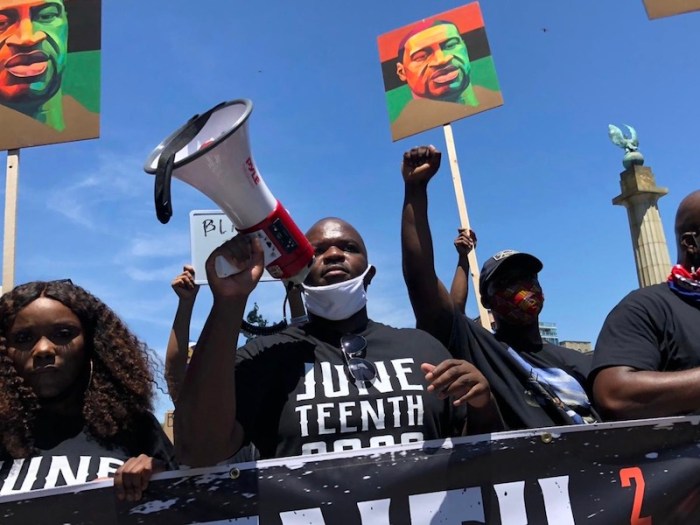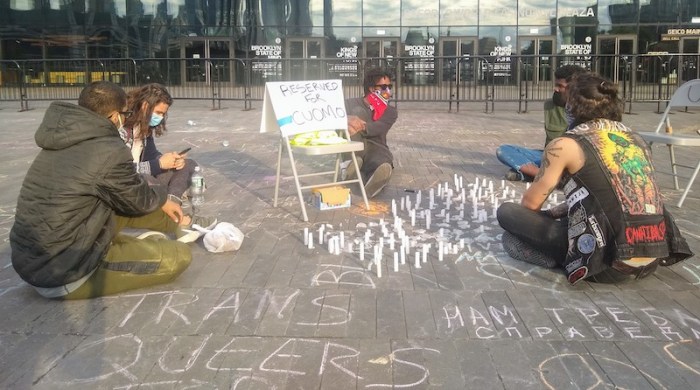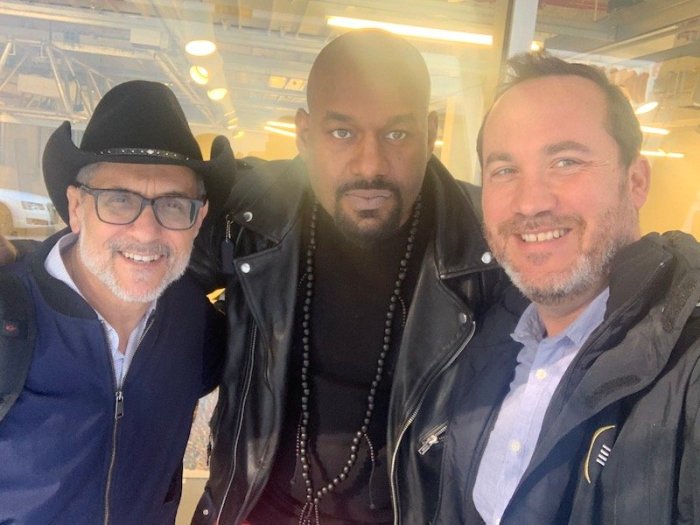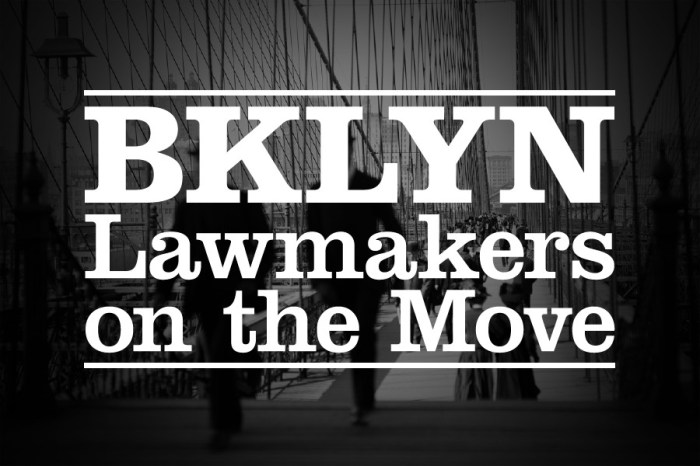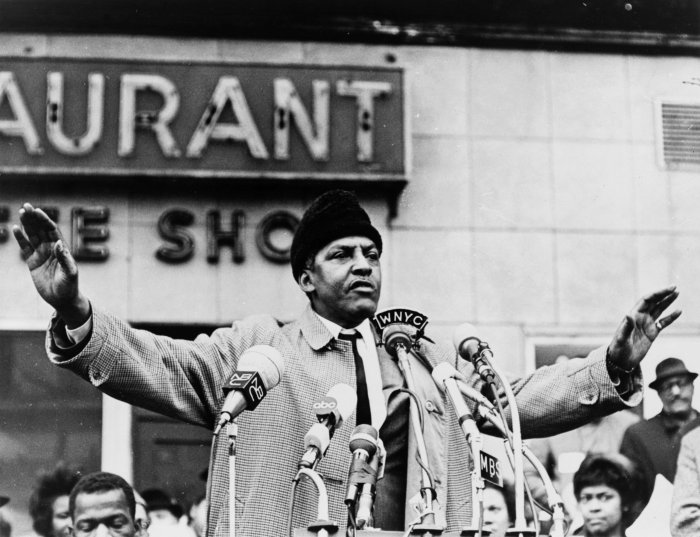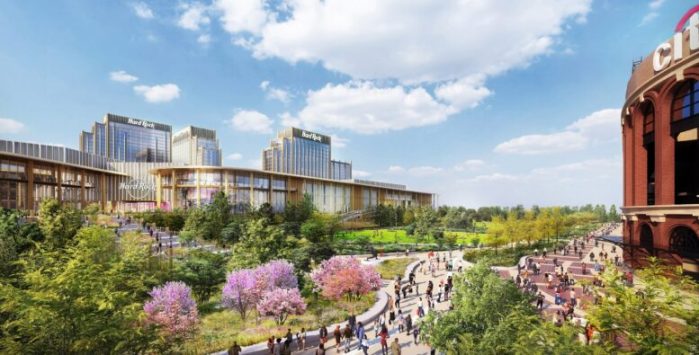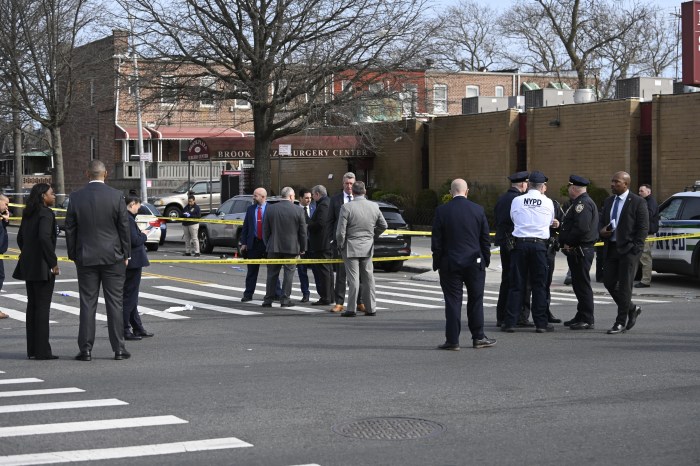Thousands of protesters marched, danced, sashayed, kicked, and stepped their way through Manhattan yesterday – in the name of not only LGBTQIA+ rights, but also black lives.
Initially cancelled because of concerns of COVID-19 in the city, the festive and colorful 2nd Annual Queer Liberation March stormed Foley Square yesterday. The Reclaim Pride Coalition (RPC), Black Trans Media, G.L.I.T.S. (Gays & Lesbians Living in a Transgender Society), VOCAL-NY, and many other organized groups decided intentionally to rename and rebrand the march to include the Black Lives Matter movement against police brutality and racial injustice.
“I just want you to bring all of that rage, all of that power, all of that grief to the streets,” shouted Olympia Perez of Black Trans Media. “How are you using your resources beyond today? Outside of a like, outside of a share or a post. How are you showing up? How are you listening to us? And don’t wait until I’m [f****ing] dead to give me my flowers and tell me the impact I made.”
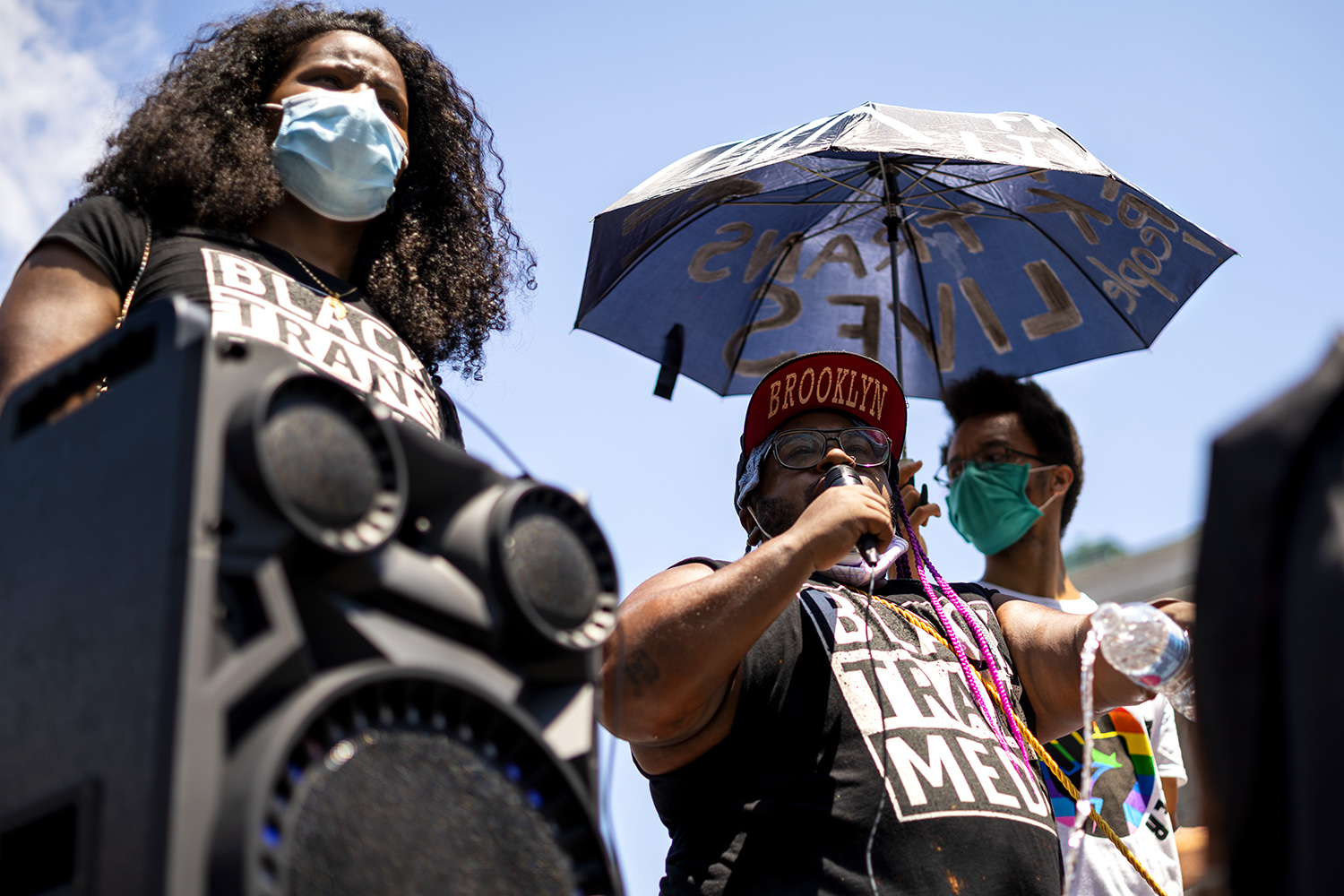
The march gathered in Foley Square on Centre Street to make its way uptown to Washington Square Park. The square was chosen for its three hundred ton black granite statue that towers 50 feet in the air, called the “Triumph of the Human Spirit,” which memorializes the hundreds of African-Americans buried below its grounds in a mass grave centuries ago.
Last year marked the 50th anniversary of the Stonewall uprising in New York City, credited as the first major social justice riot for and by Black and Latino queer and transgender people. RPC recreated the original 1970 Gay Pride march with more than 45,000 people pounding the Manhattan pavement from Stonewall to Central Park.
This year, the march honored people killed by police, such as George Floyd, Breonna Taylor, and Tony McDade. They also paid tribute to more recent victim’s such as Layleen “Xtravaganza Cubiletta” Polanco, Riah Milton, Dominique “Rem’mie” Fells, Nina Pop and others within the Black transgender community.
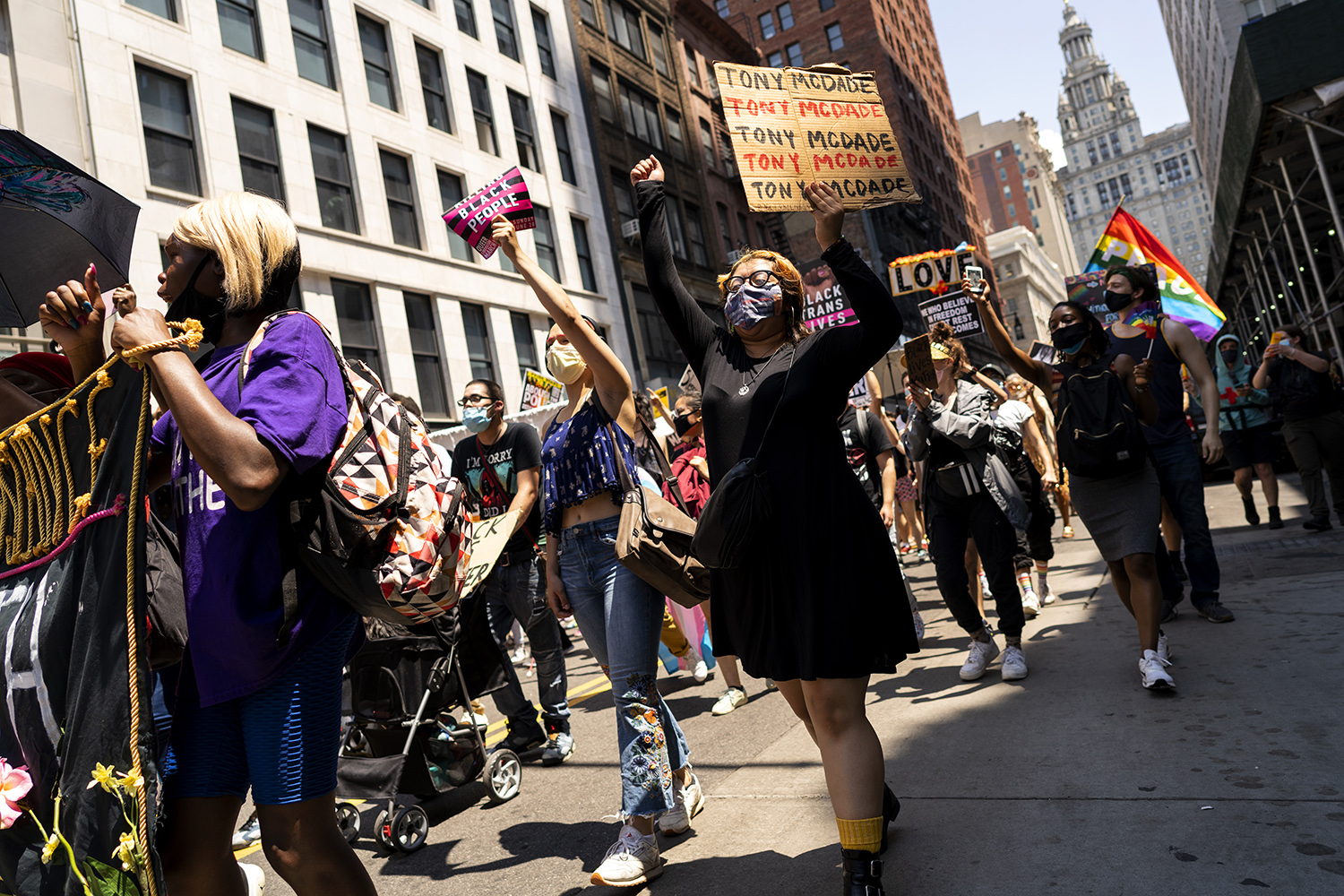
Several signs sported the phrase ‘All Black Lives Matter,’ highlighting a contention within the black community that social movements seek to erase or disassociate with LGBTQ people of color or forget black women in its struggle for equality in a larger system because of intersectional transphobia, misogyny, and classism.
“All black lives are under threat and have been under threat for 400 years,” said one organizer Jay W. Walker of the RPC, as to why ‘All Black Lives Matter’ is less problematic than the controversial slogan ‘All Lives Matter.’ “This is about all black lives, and all queer lives, and all lives of color, and trans, and all disabled lives, and anyone who’s at risk of being brutalized or persecuted or murdered by law enforcement anywhere in this country.”


